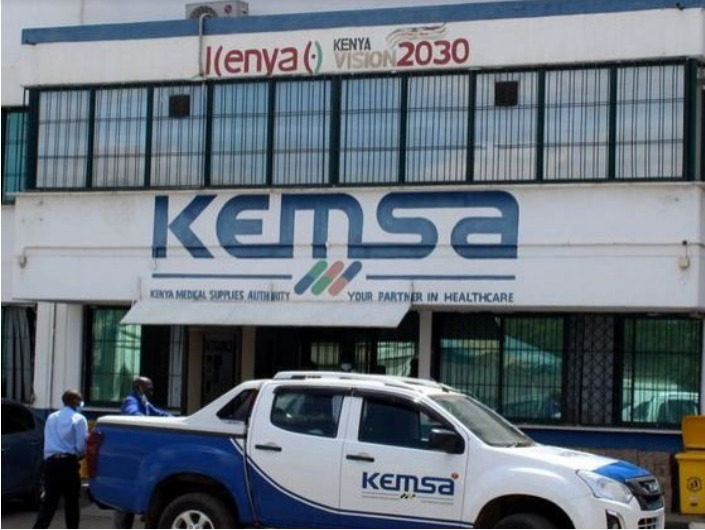Unveiling the fallout: An Analysis of Kemsa scandals and Health PS termination

In the past decade, the Kenya Medical Supplies Authority (Kemsa) has been involved in one scandal after another. Every other year, Kemsa is embroiled in what are mostly procurement-related scandals. It, therefore, came as no surprise when on Monday, May 16th 2023, Health Cabinet Secretary Susan Mochache Wafula announced a decision to suspend Ms. Terry Ramadhani, the CEO of Kemsa, amongst a raft of other staff totalling 8, some of whom work in the Ministry of Health and on the National Malaria Programme team. She also sent home the whole board which she reconstituted by appointing new board members and a new acting CEO, Mr. Andrew Mutava, to run the organisation.
The move came after allegations of corruption in the tendering process for a KSh3.7 billion mosquito net deal that did not follow guidelines given by the Global Fund.
In addition, Dr. Josephine Mburu, the Principal Secretary, State Department of Public Health and Professional Standards, responsible for procurement in the Ministry of Health was also sent home by the President.
Kemsa is known to have poor internal controls, including discrepancies in stock balances, missing drugs and difficulties in monitoring drug distribution. Past audits have also exposed inconsistencies in Kemsa’s information system, such as unexplained adjustments and overstated prices for expired drugs.
A timeline of Kemsa’s major corruption cases in recent years shows a pattern of entrenched corruption in an organisation that is responsible for the disbursement of medical supplies to the whole country.
| Year | Description of the Scandal | Amount Involved: | Action |
| 2022 | The UN-backed Global Fund uncovered corruption and mismanagement at the Kenya Medical Supplies Authority (Kemsa) through an investigation that revealed that a significant number of essential medical supplies, including 908,000 mosquito nets, 1.1 million condoms, and tuberculosis drugs worth Sh10 million, had gone missing from Kemsa’s warehouse. The Global Fund, which supports the fight against HIV/AIDS, tuberculosis, and malaria, also flagged concerns about potential fake suppliers demanding Sh1.66 billion from Kemsa.
The missing medicines are suspected to have been stolen and resold on the black market and to private chemists. Additionally, an audit by the Global Fund found that Kemsa had inflated the value of medicines by Sh640 million, with certain drugs being marked up by as much as 100 times. Some of the drugs purchased with funds from the Global Fund expired due to a shortage in government hospitals. |
Kshs 3.7 Billion | |
| 2021 | Kemsa unlawfully redirected funds intended for Universal Health Coverage (UHC) to purchase Covid-19 items without the Ministry of Health’s approval. The agency was found to have utilized UHC and Capital Budgets to procure Covid-19-related items worth Sh7,632,068,588, despite lacking evidence of budget approval from the appropriate authorities. Additionally, the procurement process did not involve a proper assessment of needs and planning, leading to an excessive purchase of Covid-19-related stock, which was stored in Kemsa’s warehouses. The procurement process was also questioned. Companies such as Kilig Ltd and Shop ‘N’ Buy Ltd, which were registered on January 22, 2020, and February 14, 2020, respectively, were awarded contracts to supply Covid-19-related items raising concerns. | The total amount involved was Kshs. 7.8 billion. According to estimates by the Auditor-General, Kenyans lost KSh 2.3 billion in this corruption scandal. | The CEO and Board were sacked and parliament recommended their prosecution. Parliament also recommended that suppliers refund the excess amounts.
Parliament’s report made several recommendations, including the following:
· The prosecution of all those implicated in the corruption and mismanagement · The strengthening of the procurement process at Kemsa · The improvement of inventory management at Kemsa · The establishment of a central procurement agency for all government ministries and departments |
| 2015 – 2020 | The Medical Equipment Services (MES) programme was a government initiative to provide essential medical equipment to public hospitals in Kenya. The programme was managed by Kemsa and was funded by a loan from the World Bank. The MES programme was launched in 2015 and was supposed to run for a period of five years. However, the programme was plagued by corruption and mismanagement from the start. In 2017, it was revealed through a series of investigative reports by the Kenyan media that Kemsa: awarded contracts to unqualified companies, including companies that had no experience in supplying medical equipment, it inflated prices for medical equipment, in some cases by up to 100% and failed to deliver essential medical equipment to public hospitals. Kemsa officials were bribed by suppliers in exchange for awarding contracts and officials were also involved in a scheme to divert medical equipment to private hospitals and clinics. | Estimates lie between Kes 20 Billion and 30 billion. | A Senate ad hoc committee investigated the scandal and a report with recommendations was written. |
It is clear from the few cases highlighted that the President and the Cabinet Secretary have a long way to go before they can clear up the mess which appears entrenched in the organisation. President William Ruto had already promised to deal with the rot in Kemsa before taking the decisive step this week. In addition, he warned top government officials against corruption and wastage saying he would not tolerate it. However, a lot needs to be done before the corruption in the organisation and other similar parastatals and agencies can be completely done away with. It is hoped that the new board will live up to the expectations of the nation.

